Search Results
Showing results 1 to 13 of 13
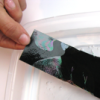
Exploring Materials: Thin Films
Source Institutions
In this activity, learners create a colorful bookmark using a super thin layer of nail polish on water. Learners discover that a thin film creates iridescent, rainbow colors.
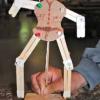
Lever Cowboy
Source Institutions
In this activity, learners build a figure that moves and "comes to life" when they pull its string.
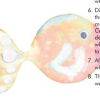
Universal Indicator Rainbow Trout
Source Institutions
In this activity, learners cut out a fish and then "paint" it using universal indicator and acids and bases.
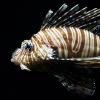
Fishy Observations
Source Institutions
In this activity (page 1 of the PDF under SciGirls Activity: Rabbits), learners will visit a zoo, aquarium, or pet store to view a variety of fish.
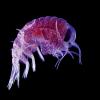
Plankton Races
Source Institutions
In this two-part activity, learners investigate buoyancy, density and surface area as well as biodiversity and the relationship between the structure and function of organisms.
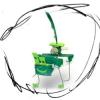
Jitterbugs
Source Institutions
In this activity, learners construct bug models that "jitter" all over the table with just a battery, motor, and counterweight.
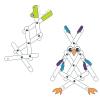
Linkages
Source Institutions
This design challenge is an open-ended exploration of linkages, a group of parts connected by hinges, and the types of motion they can create.
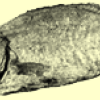
Make a "Mummy"
Source Institutions
The Ancient Egyptians used a naturally-occurring salt from the banks of the Nile River, called natron, to mummify their dead.
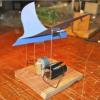
Motor Bird
Source Institutions
In this activity, learners build a bird that flies in place with help from a motor, wire, and some straws.
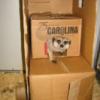
Animal House
Source Institutions
The goal of this activity is to design, build and test a house or toy for an animal.
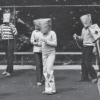
Sound Off!
Source Institutions
This activity includes several games about animal sounds. Using their sense of hearing and communicating with various kinds of noisemakers, learners role-play predator and prey.

Environmental Chemistry
Source Institutions
In this activity with several mini experiments, learners explore the chemistry that helps scientists learn about the environment and how they can help save it.
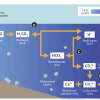
Coral, Carbon Dioxide and Calcification
Source Institutions
In this group activity, learners act out key stages of the "ocean carbon cycle" (also known as the "carbonate buffer system") through motions, rearranging blocks and team tasks.
